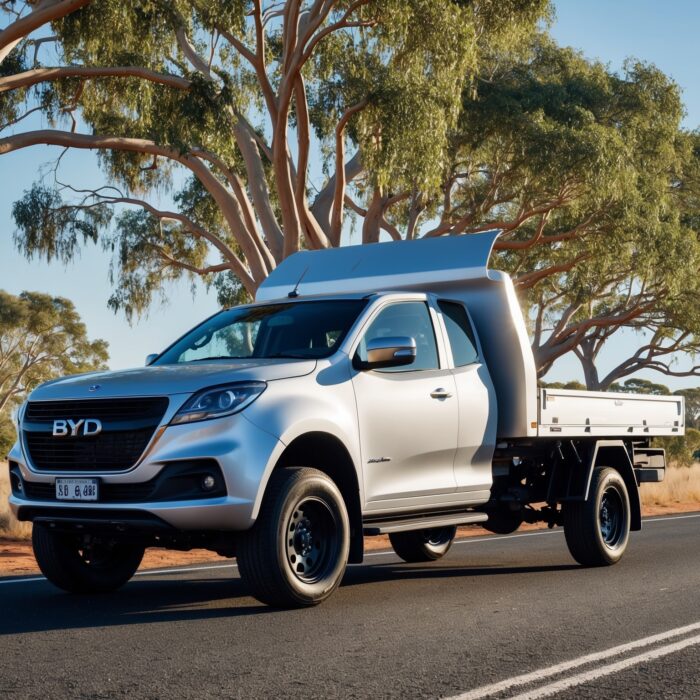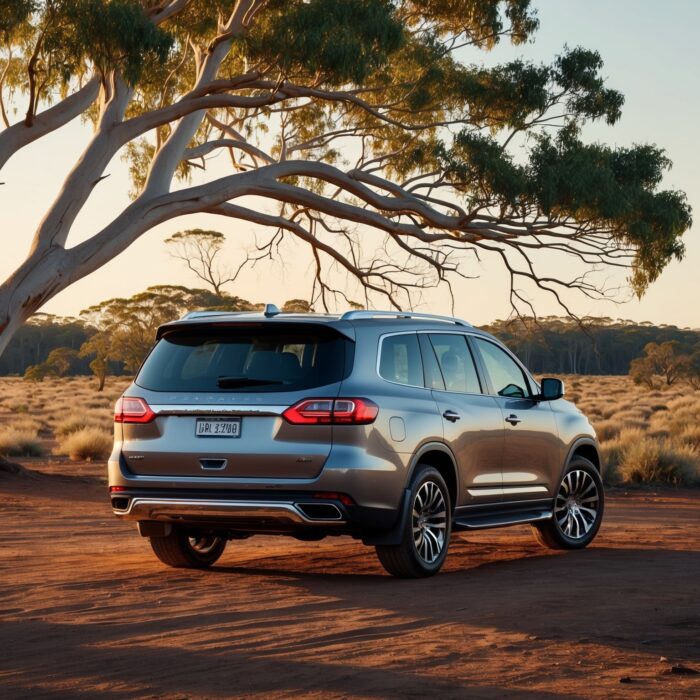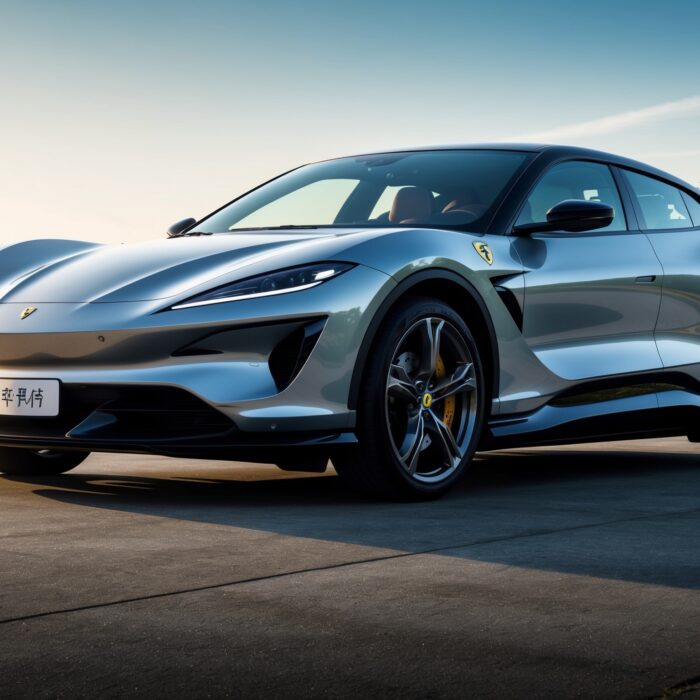Luxury Car Tax Under Review by Federal Government – Once More
Hey there, car enthusiasts! If you’ve been following the automotive news or have a penchant for luxury rides, you might have caught wind of the ongoing discussions surrounding the Luxury Car Tax (LCT) in Australia. It seems like every few years, this topic resurfaces, sparking debates and discussions among consumers, dealers, and manufacturers alike. With the federal government recently announcing a review of the Luxury Car Tax, we at Torque Feed thought it was high time to dive deep into what this means for car lovers, the industry, and the economy.
The Basics of Luxury Car Tax
First off, let’s break down what the Luxury Car Tax actually is. Introduced back in 2000, the LCT is a tax imposed on cars that exceed a certain threshold. As of now, that threshold sits at $84,916 for fuel-efficient vehicles and $71,849 for other cars. If the purchase price of your dream car exceeds these amounts, you’re looking at a 33% tax on the amount above the threshold. Sounds steep, right? This tax was initially designed to ensure that the wealthy contribute to the economy while promoting environmentally friendly vehicles. However, is it doing more harm than good? Let’s explore.
Also Read: Consumer Reports Says These Are The Best Used Cars Under $20,000
Current Review: What’s on the Table?
The federal government has recently initiated a review of the Luxury Car Tax, indicating that they are seeking input from the public, industry stakeholders, and economic experts. The goal? To figure out if the LCT is still relevant or if it needs a complete overhaul. Considering the evolving landscape of the automotive industry, including the rise of electric vehicles (EVs) and changing consumer preferences, the timing of this review could not be more crucial.
Also Read: Consumer Reports Says These Are The Best Used Cars Under $20,000
Why Now?
With numerous car manufacturers shifting their focus toward electric and hybrid vehicles, the government is under pressure to modernize the tax framework. The rise of EVs has led to a significant increase in vehicle prices, putting many desirable models over the LCT threshold. This has left consumers frustrated, especially when considering the environmental benefits of these vehicles. The review aims to address these discrepancies and ensure that taxation aligns with contemporary automotive trends.
What Are the Implications for Consumers?
For car enthusiasts, the implications of the Luxury Car Tax review are far-reaching. Let’s break it down:
- Higher Costs for Luxury Cars: If you’re eyeing that shiny new BMW or Tesla, the LCT could add thousands to your purchase price. This tax can make luxury vehicles less accessible to average consumers who may have been saving up for their dream car.
- Impact on EV Adoption: The current tax structure doesn’t incentivize the purchase of electric vehicles, which could deter consumers from making the switch. As the government pushes for greener initiatives, failing to address the LCT could stall progress.
- Potential Changes in Pricing: Depending on the outcome of the review, we might see manufacturers adjusting their pricing strategies. If the tax is reduced or restructured, it could lead to a decrease in the overall costs of luxury vehicles.
Industry Perspectives
The automotive industry is buzzing with opinions regarding the Luxury Car Tax review. Dealers, manufacturers, and industry analysts have all weighed in. Here’s a snapshot of what they’re saying:
Dealers’ Reactions
Many car dealers have expressed frustration over the LCT. They argue that the tax creates a barrier to entry for consumers who are interested in high-end vehicles. According to several dealership owners, the LCT discourages buyers from exploring luxury models, resulting in lost sales opportunities. Some dealers are advocating for a complete removal of the tax, while others are suggesting a complete overhaul that considers the evolving market.
Manufacturers’ Concerns
Car manufacturers are also keeping a close eye on the review. They’re concerned that the existing threshold is outdated and does not reflect the current market realities. With the price of technology integrated into modern vehicles skyrocketing, many premium vehicles now fall into the LCT bracket. Manufacturers argue that a re-evaluation of the threshold is essential to remain competitive and to foster innovation within the industry.
Consumer Advocacy Groups
Consumer advocacy groups have chimed in as well, calling for a tax structure that supports environmentally friendly vehicles. They argue that the Luxury Car Tax should not penalize buyers of electric vehicles and that the government should promote sustainable choices among consumers. If the review leads to a fairer tax structure, it could encourage more Australians to invest in EVs, ultimately benefiting the environment.
The Future of Luxury Car Tax
As the review progresses, it’s essential to consider what the future of the Luxury Car Tax might look like. Here are a few potential outcomes:
1. Adjusted Thresholds
A logical step would be to increase the thresholds for the Luxury Car Tax. By aligning the thresholds with current market values, more vehicles would be exempt from the tax, benefiting both consumers and manufacturers. This could foster more competition in the luxury market while making high-end vehicles more attainable.
2. Incentives for Electric Vehicles
Another possibility is the introduction of incentives for electric vehicles under the tax structure. This could include exempting EVs from the Luxury Car Tax altogether or providing rebates for those who choose sustainable options. Such measures could align the tax system with environmental goals and encourage consumers to make greener choices.
3. Complete Overhaul of the Tax
If the government truly seeks to modernize the tax framework, a complete overhaul may be on the table. This could involve redefining what constitutes a luxury vehicle and creating a more comprehensive tax structure that reflects the current automotive landscape.

What Can You Do?
As consumers, it’s essential to stay informed and engaged with the discussion around the Luxury Car Tax. Here are a few ways you can get involved:
- Stay Updated: Keep an eye on automotive news and government announcements regarding the LCT review. Knowledge is power, and staying informed will help you understand how changes might affect your future purchases.
- Participate in Consultations: The government is likely to host consultations or invite submissions from the public. Take the opportunity to voice your opinion and share your thoughts on how the Luxury Car Tax impacts you as a consumer.
- Engage with Advocacy Groups: Consider joining or supporting consumer advocacy groups that align with your views on automotive taxation and environmental sustainability. Collective voices are more powerful than individual ones.
Final Thoughts
As we gear up for another round of discussions regarding the Luxury Car Tax, it’s evident that this is a complex issue with many moving parts. For car enthusiasts and potential buyers, the stakes are high. The outcome of this review could reshape the luxury automotive market in Australia, making it more accessible and aligned with contemporary values. Here at Torque Feed, we’ll continue to monitor the situation closely and provide updates as they unfold. After all, the world of luxury cars is always evolving, and we’re here to keep you in the loop!
What are your thoughts on the Luxury Car Tax? Will it impact your next purchase? We’d love to hear from you in the comments below!












